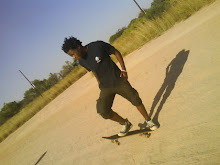
The struggle, marginalized, oppressed, dehumanized, degraded, winds of change, stolen dreams, revolution and enough is enough. These are but few of the sentiments shared by the youth during apartheid regime, desperate for change and salvation. Efforts to bring about change through talks, non-violent demonstration and mass union strikes by the black people of South Africa in the 1940 and 1950 frustrated the black people because such efforts did not bare any fruit. Countless people died in peaceful demonstration declaring there own humanity and seeking freedom in their own land. The patience of the people grew thin which culminated in the formation of Umkhonto we Sizwe. A radical approach which constituted an armed struggle against the brutal government of the National Party. They used tactics just as wild and savage as the oppressors, indicative of a people with no other hope, a drastic decision for an equally intense situation.
Being on a quest in search firstly of my own identity as well as what it means to be a young black person in south Africa led me down the road of drastic decisions. Some of the black people of this country are still battling with seeing themselves as equals to the white people. This is not a problem that affects just the older generation but its trickled down to the youth of today. This is not just an attempt by a young bored Kutloano to philosophy about the battered souls of the black South African people, but this is the reality for my own friends and the people that I’ve engaged with in my adventure to find self. The black consciousness movement pioneered by Steve Biko has never been more relevant than today. The movement was a call to realise the beauty of being black people and the ability to celebrate in all its diversity. The evils of the apartheid government still live in the heart black South Africans.
I adopt Umkhonto we Sizwe as a metaphor against a struggle the evidently still lives on, but the tragedy is the ignorance and pretence that characterises it. A revolutionary struggle is needed to battle the lie that black South Africans are worth on more than animals. Even though the black people are in political power it has not contributed to individuals valuing themselves as humans just like the white people. Umkhonto we Sizwe is a reminder to me that revolution is still needed not a political revolution but a transformation in the way black people view themselves, a realisation of self worth and an ability to draw inspiration from a rich history of amazing individuals, which can shape a different future.
My quest still goes on because there are still countless questions to be answered and the biggest on of those is what it means to be a black person. And more importantly what does it mean to be black in South Africa.
